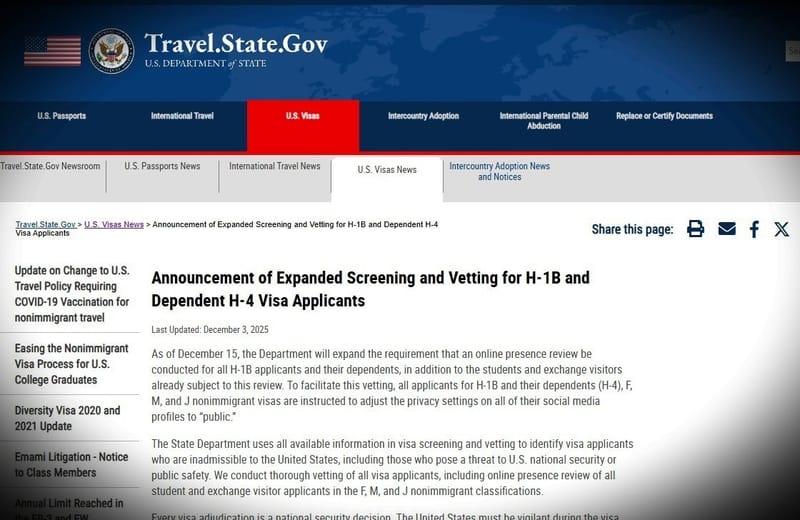Indian-Origin Techie Develops AI Tool to Simplify H-1B & Work Visa Filing
This innovation highlights how technology can alleviate the significant stress and complexity of the U.S. visa system for skilled professionals and their employers.

Subscribe to our newsletter and stay informed about latest H1B news, policy updates and and other developments.
Article Summary
Priyanka Kulkarni, an Indian-origin machine learning scientist, endured a nine-year-long, complex US visa process. Drawing from her personal experience, she is now leveraging artificial intelligence to streamline and simplify work-based immigration filings for others.
Original Article: financialexpress.com
[ Sentiment: positive | Tone: factual ]
This summary and analysis were generated by TheNewsPublisher's editorial AI. This content is for informational purposes only; it does not constitute legal or immigration advice.
[ Sentiment: positive | Tone: factual ]
This summary and analysis were generated by TheNewsPublisher's editorial AI. This content is for informational purposes only; it does not constitute legal or immigration advice.
TNP AI: Key Insights
This story powerfully illustrates the immense personal and professional strain skilled professionals endure due to the complex U.S. visa system, particularly the H-1B. For employers, such AI-driven solutions could significantly reduce administrative burdens, minimize errors, and accelerate the talent acquisition process, making the U.S. more competitive in attracting global talent.
The persistent complexity of H-1B and other work visa filings has historically necessitated expensive legal counsel, often causing delays and anxiety. Kulkarni's initiative points to a future where AI could democratize access to immigration assistance, potentially inspiring similar innovations in other high-demand immigration systems like those in Canada or the UK, which are also investing in digital transformation to improve efficiency.




